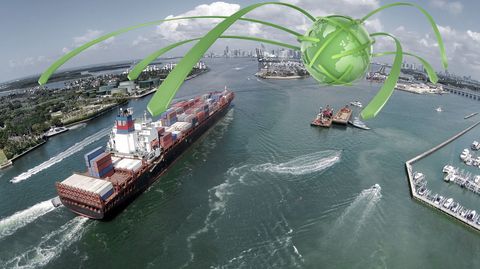For businesses that depend on free, open cross-border trade for profitability, the recent resurgence of protectionism in many of the world's leading nations represents a deeply worrying trend.
Mounting evidence suggests that the strong consensus among developed nations on the importance of free trade is starting to erode, with many leading economies - most visibly the US, under the leadership of populist president Donald Trump - backing away from trade pacts in order to appease local interests.
A recent report from the European Commission has highlighted the scale of the current protectionist surge and the problems it could be causing for businesses - while also underlining the ongoing commitment of bodies such as the EU to facilitating international trade.
The growing impact of protectionism
The Report on Trade and Investment Barriers was released on June 26th by the European Commission, based on concrete complaints received from European companies about restrictive measures affecting a wide range of sectors, including everything from agri-food to shipbuilding industries.
It was revealed that European exporters reported a ten per cent increase in the number of trade barriers they encountered in 2016, with 36 new restrictions being put in place during last year. This mean that 372 barriers of this kind were in place at the end of last year in more than 50 trade destinations across the world, with the obstacles created in 2016 alone affecting EU exports currently worth around €27 billion.
These estimates do not include trade defense measures such as anti-dumping or anti-subsidy duties, which are designed to make trading conditions fairer, meaning that each of these 372 barriers could be having a negative impact on business conditions.
The most prominent offenders
The European Commission revealed that Russia and India were the biggest culprits in terms of implementing new trade barriers, confirming protectionist trends already identified in last year's edition of the same report.
Russia, for example, was found to have introduced restrictions on the participation of foreign companies in investment projects undertaken by state-owned enterprises, as well as export subsidies in the automotive and agricultural machinery sectors and technical barriers to trade in the toy sector. India, meanwhile, was singled out for bringing in minimum import pricing in the steel sector, additional duties for textiles and unnecessary requirements for medical devices.
It was also noted that Russia had the highest total number of protectionist measures in place with 33, followed by Brazil, China and India with 23 each. Of particular concern to EU trade commissioner Cecilia Malmstrom was the fact that so many nations maintaining the highest number of trade barriers are G20 members - a trend she described as "worrying", prompting her to emphasize protectionism as a key topic of conversation during the recent G20 summit in Hamburg.
How is the EU combating this problem?
Despite these potentially problematic developments, the report also indicated that the EU was able to make a significant amount of progress in combating protectionism during 2016, with the European Commission restoring normal trading conditions in 20 separate instances affecting EU exports worth €4.2 billion.
A total of five trade barriers in South Korea were addressed through these efforts - including the harmonization of certain automotive sector regulations with international standards, and an amendment of a discriminatory measure in the cosmetics sector related to minimum floor area for domestic products - while three obstacles were removed in China, plus two each in Israel and Ukraine.
The food and drink, automotive and cosmetics sectors were said to have achieved the greatest benefit from these actions, which were conducted through collaboration between the European Commission, the EU member states and various business representatives. The EU has pledged to continue making efforts to tackle protectionism wherever it arises - but clearly, a change of a political strategy will be needed in many countries in order to ensure these efforts will not always be needed.
Ms Malmstrom said: "We clearly see that the scourge of protectionism is on the rise. It affects European firms and their workers ... Europe will not stand idly by and will not hesitate to use the tools at hand when countries don't play by the rules."






